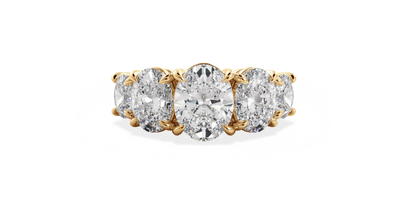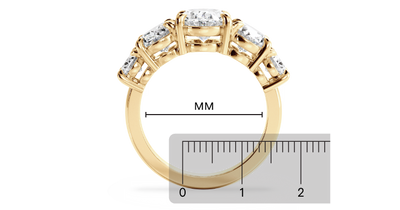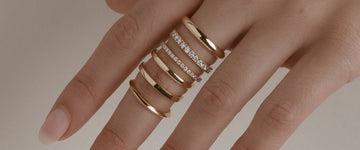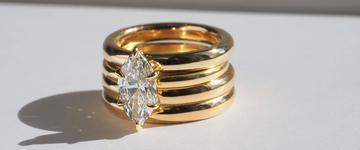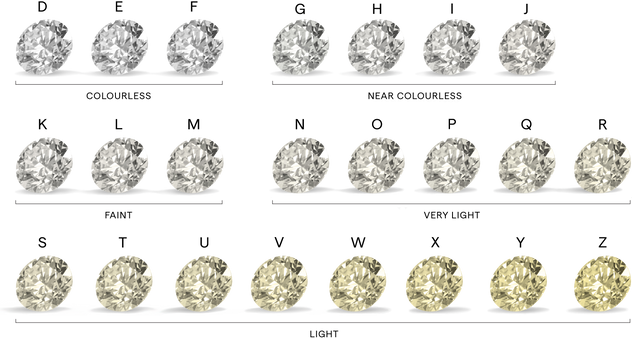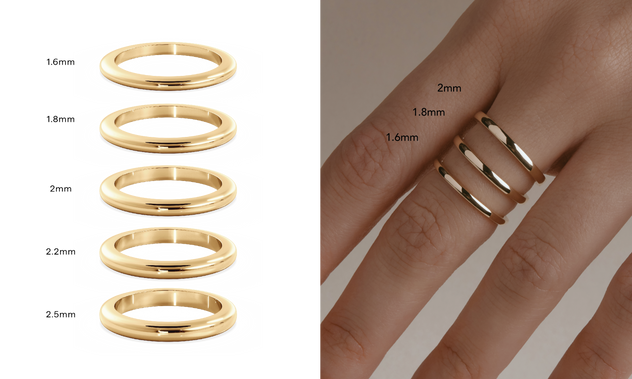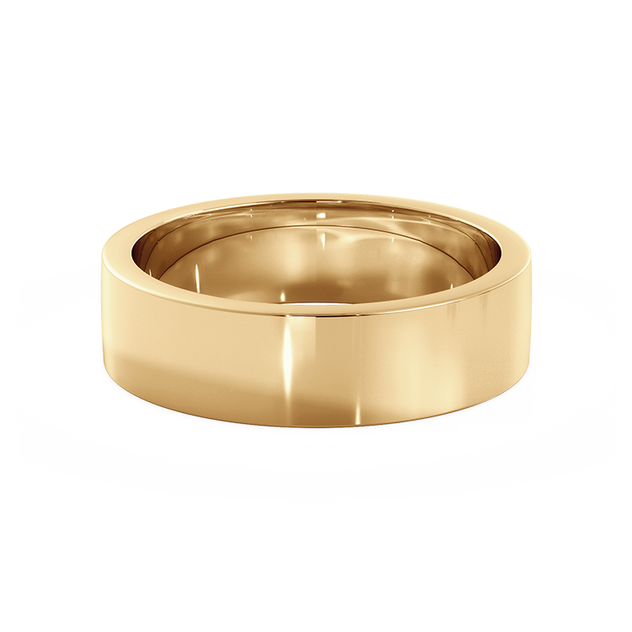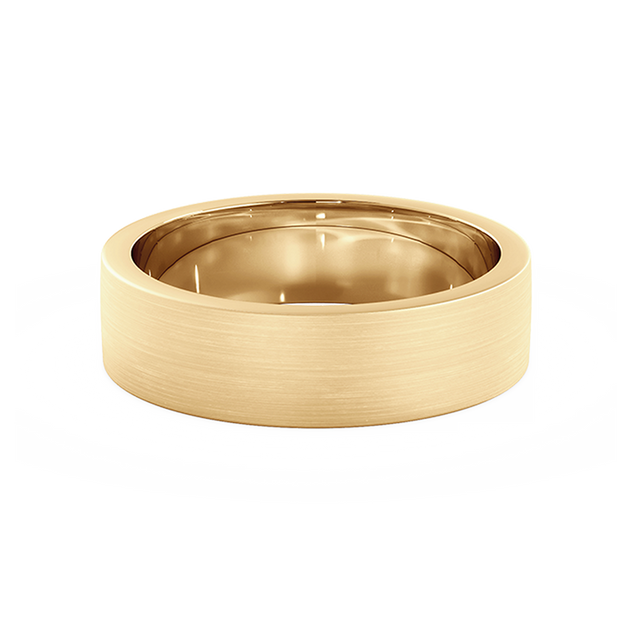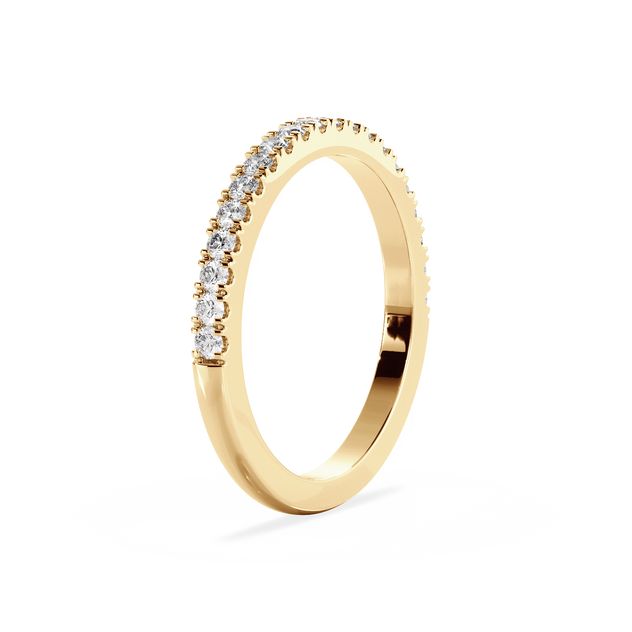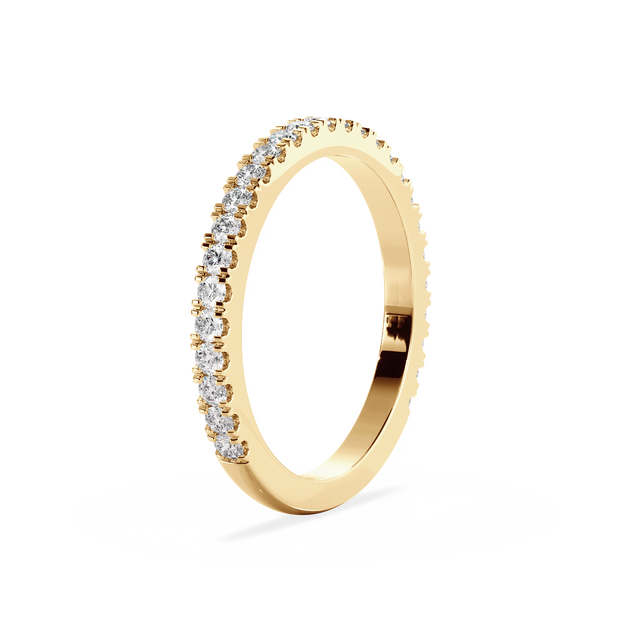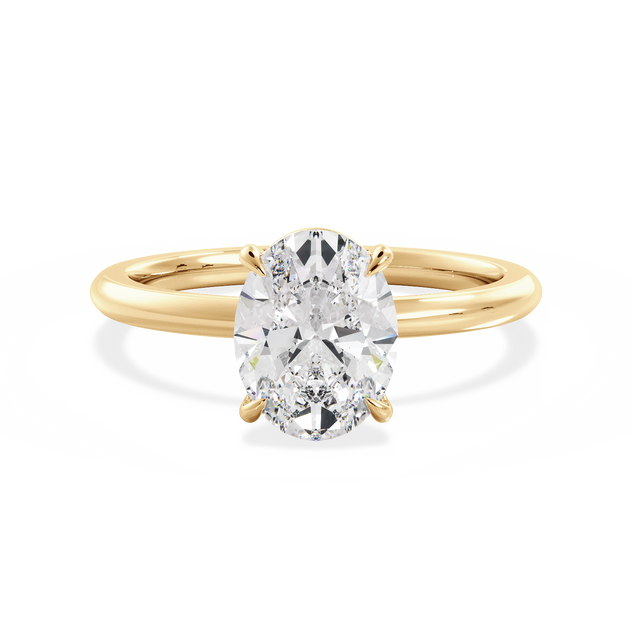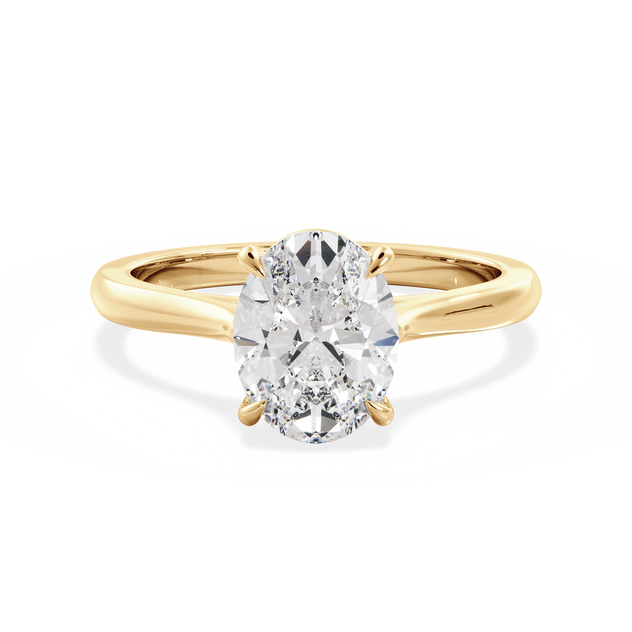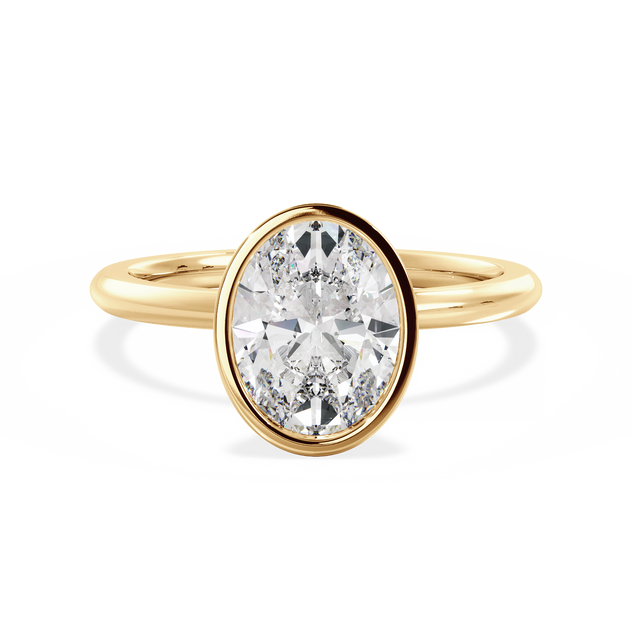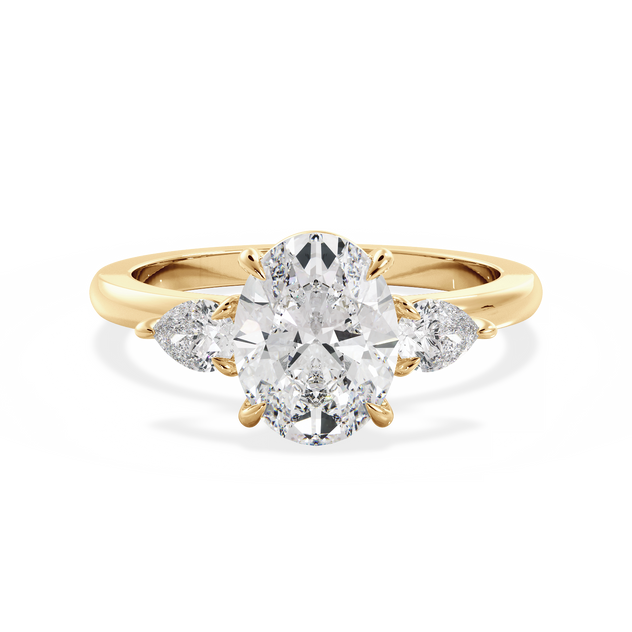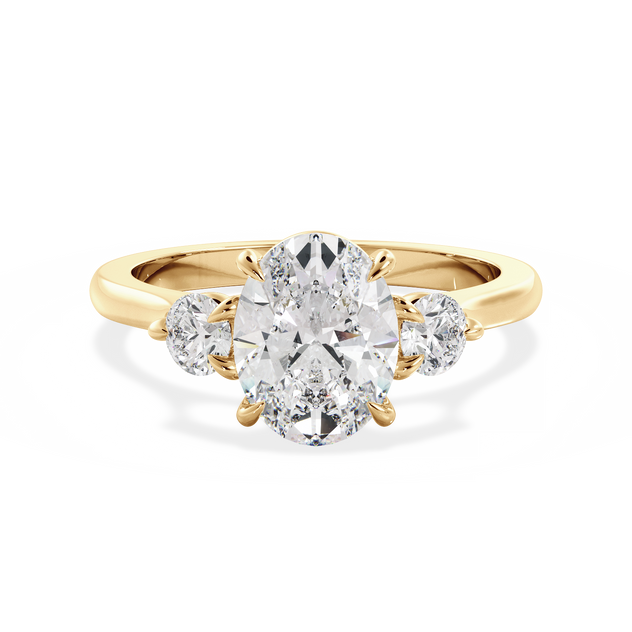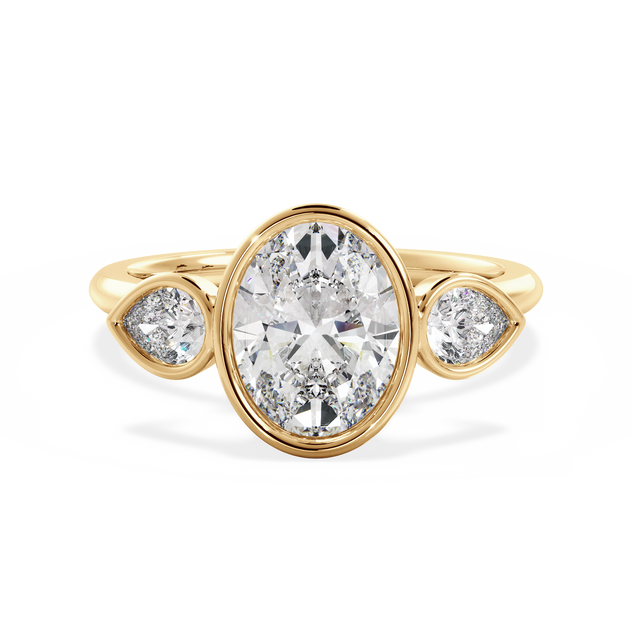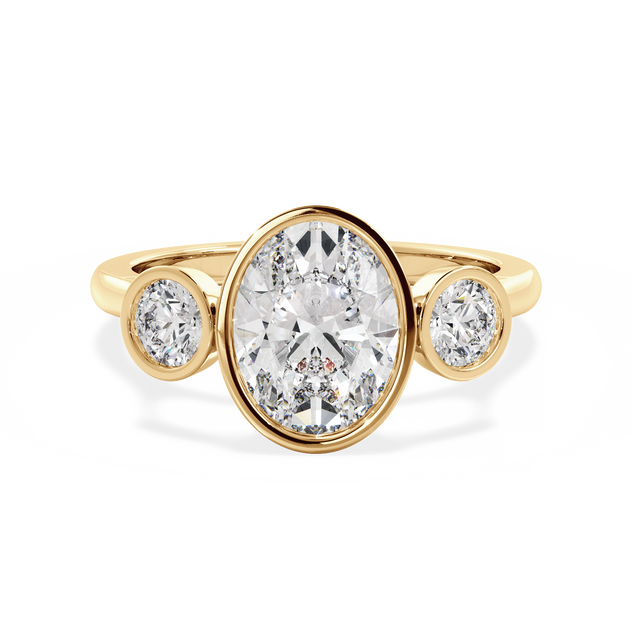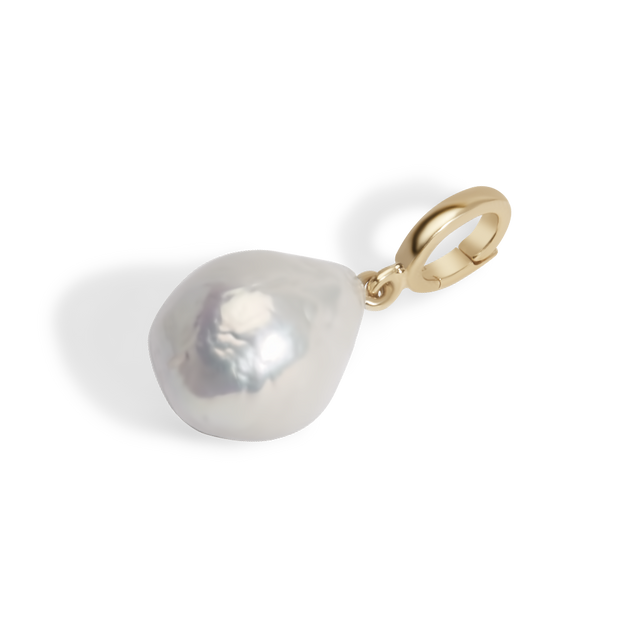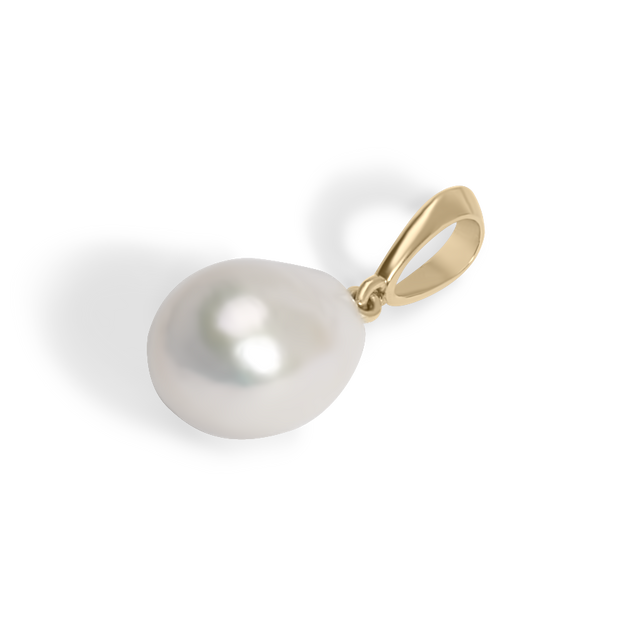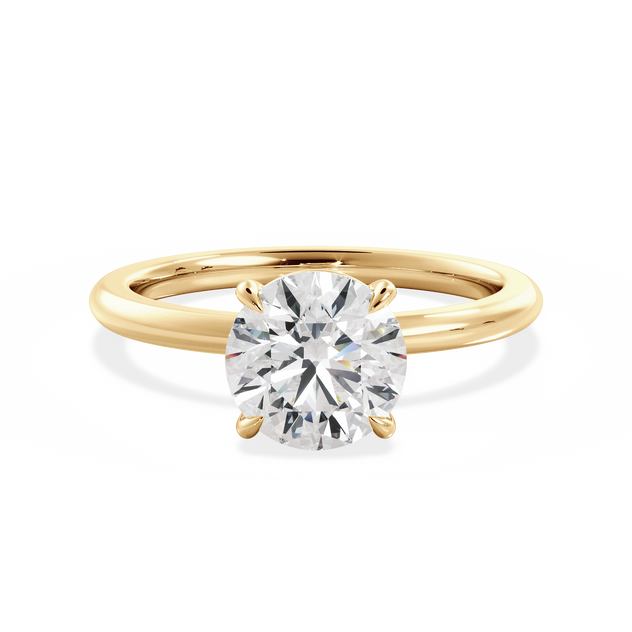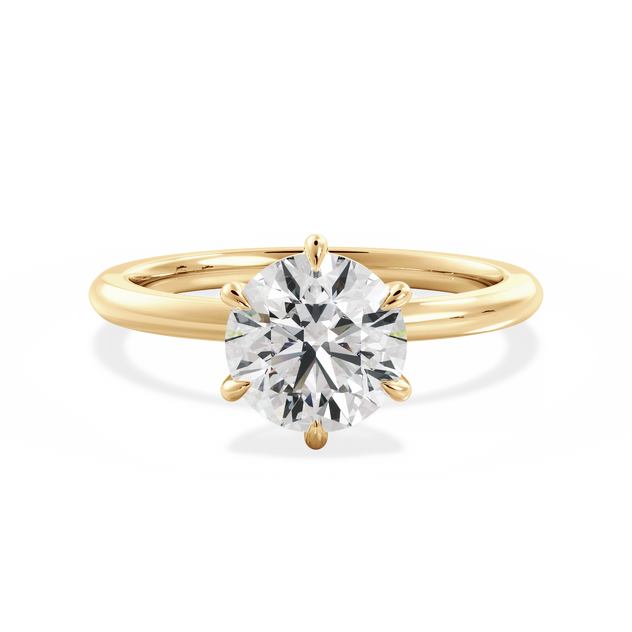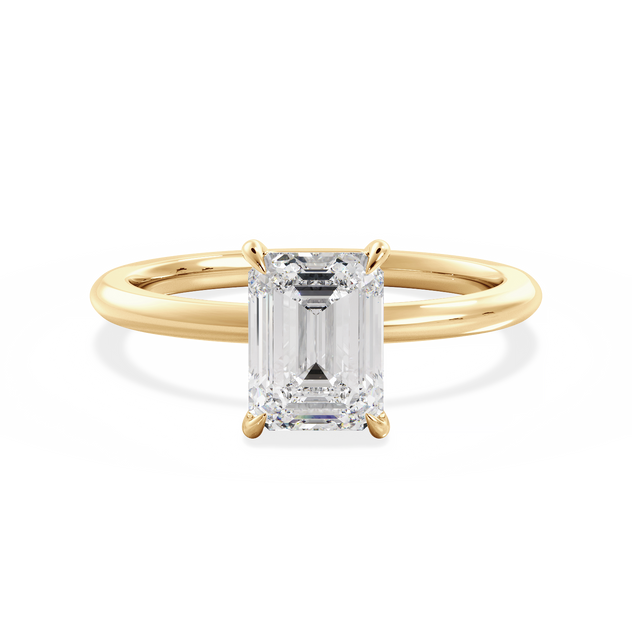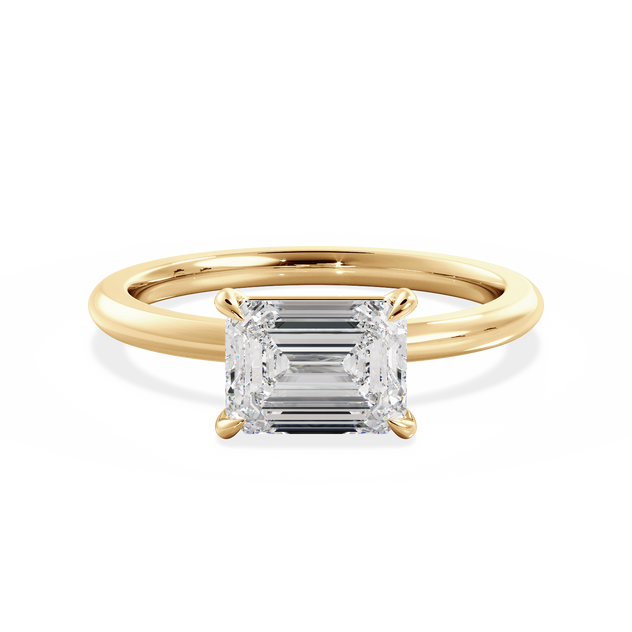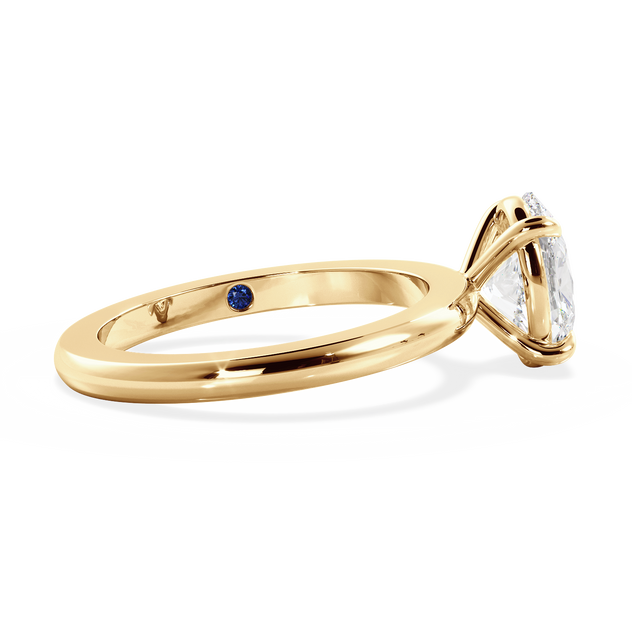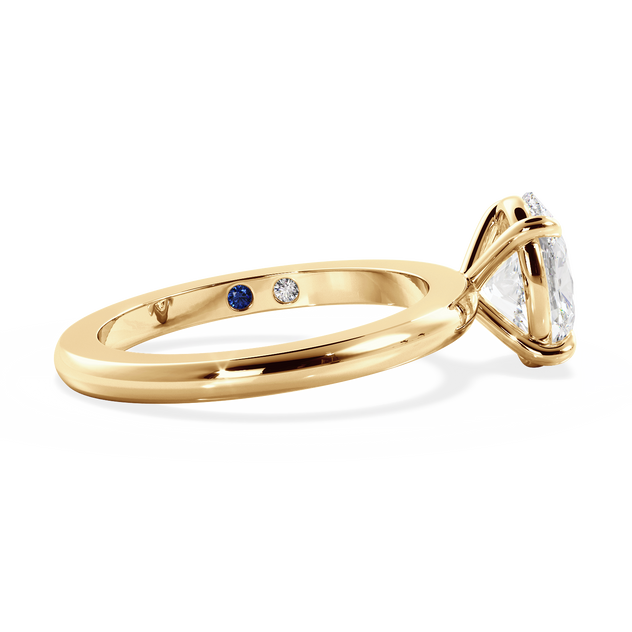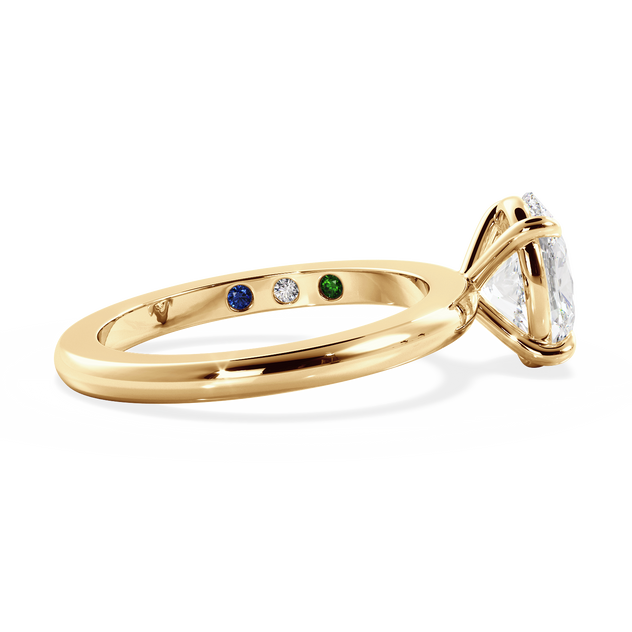Use an existing ring that fits on the ring finger
There is a common misconception that fine jewellery, including rings, bracelets, necklaces, and earrings, is indestructible. However, despite being crafted from durable materials, these cherished pieces require proper care to ensure their longevity, maintain their shine, and preserve their value. Below, we delve into the importance of jewellery care, introduce the exquisite range of fine jewellery available at Louise Jean, and share essential maintenance tips to keep your jewellery looking as stunning as the day you bought it.
Why Jewellery Care Matters
Fine jewellery is more than just an accessory—it's an investment, a keepsake, and a reflection of personal style. Proper care ensures:
- Longevity: Jewellery maintains its structural integrity, avoiding unnecessary wear or damage.
- Shine: Regular maintenance keeps gemstones sparkling and metals gleaming.
- Value Preservation: Well-maintained jewellery retains its beauty and financial worth over time.
Whether it’s a treasured engagement ring or a classic piece of fine gold jewellery, the right care can significantly extend its life and enhance its brilliance.
Types of Fine Jewellery We Offer
At Louise Jean, we pride ourselves on offering an exquisite range of fine gold jewellery designed to elevate any occasion. Alongside their beauty, each piece deserves proper care to maintain its elegance and longevity.
Gold Earrings
Explore our collection of gold earrings, perfect for adding a touch of elegance to your everyday look or special events. These timeless designs blend sophistication with contemporary flair.
Care Tip: To preserve their shine, always remove your earrings before swimming or using hair products, as chemicals can tarnish the gold. Store them in a soft-lined box to avoid scratches.
Gold Necklaces
Discover the beauty of our gold necklaces, crafted with precision to exude effortless luxury. Whether layered or worn alone, these pieces are a staple in any jewellery collection.
Care Tip: Avoid wearing your necklaces during workouts or showers, as sweat and water can dull their finish over time. Clean them gently with a soft cloth to maintain their sparkle.
Gold Bracelets
Our gold bracelets are the epitome of understated charm. These delicate yet durable pieces add a refined finish to your ensemble.
Care Tip: Remove your bracelet before engaging in household tasks or manual activities to prevent bending or scratching. Store each bracelet separately to avoid tangling with other jewellery.
Fine Jewellery Maintenance Tips
Preserving the beauty of your fine jewellery involves incorporating mindful habits into your routine. Here are some expert tips:
Handle Your Fine Jewellery With Care
Avoid excessive handling or pulling, as this can weaken clasps, prongs, and chains. When putting on or taking off your jewellery, use clean hands and a gentle touch to avoid scratches or residue buildup.
Store Your Jewellery in a Safe Place
When not in use, keep your fine gold jewellery in a soft-lined box or a jewellery pouch. This prevents scratching and reduces exposure to moisture, dust, and air, which can tarnish metals over time.
Keep Away from Heat
Heat and sunlight can damage the appearance and structural integrity of your jewellery, especially gemstones. Always store your pieces away from direct sunlight or sources of heat to prevent discolouration or warping. Oxidation is more likely to occur during warmer or more humid months, so store your pieces carefully through the summer or take care to clean them more regularly.
Rotate the Fine Jewellery Pieces You Wear
Wearing the same jewellery every day can accelerate wear and tear on your favorite pieces. By rotating your jewellery, you can distribute usage more evenly, ensuring that no single item endures excessive stress or exposure to elements. This practice not only helps preserve the condition of your jewellery but also allows you to enjoy and showcase more of your collection. Regular rotation ensures you get the maximum wear and versatility out of each piece, keeping your look fresh while protecting your treasured items.
Should I have my Fine Jewellery Insured?
When it comes to caring for your sentimental pieces, one of the best things you can do is enlist an independent insurance company to protect your special piece in the event that it is lost, stolen or damaged. This will cover anything outside of our warranty and protect you and your special piece from circumstances out of your control. Here at LOUISE JEAN we highly recommend Q Report, who specialise in fine jewellery and engagement ring insurance. To find out more click here.
*Please ensure you undertake your own insurance research as the above information is provided as a general guide and has not taken into account your specific objectives, needs, and/or financial situation.
Should I Wear My Engagement Ring Every Day?
At Louise Jean, we design each piece of fine jewellery with high-quality precious metals and gemstones, but no jewellery is indestructible. Your fine gold jewellery is both delicate and valuable, so proper care is essential. Below are common scenarios where you should avoid wearing your engagement ring or other cherished jewellery, including gold earrings, gold necklaces, and gold bracelets.
Pool & Ocean
The pool and the beach are two places where you should avoid wearing your fine jewellery. Pool water contains chemicals like chlorine that can tarnish or oxidise your jewellery, including gold earrings and gold bracelets. Metal can be compromised by pool water, leading to weaknesses or brittleness as the alloys in gold are worn away - this is known as pitting.
Similarly, the cold water of the ocean can cause your fingers to shrink, increasing the risk of losing rings - sadly, we regularly hear of lost rings while swimming or snorkelling. Protect your gold jewellery by leaving it at home when swimming to ensure its brilliance and longevity.
Cleaning & General Household Tasks
Always remove your fine gold jewellery, including gold necklaces and bracelets, when cleaning or performing household chores. Chemicals in cleaning agents, such as bleach, can corrode precious metals and gemstones. Even everyday tasks like changing bed sheets can put unnecessary pressure on your rings or snag delicate chains. Prioritise safety by storing your fine jewellery in a secure place while you clean.
Cooking
When cooking, it’s best to remove your fine jewellery, especially rings and bracelets. Food particles can become trapped in your fine gold jewellery, and sharp or heavy objects like knives and pans can damage the metal or gemstones. Additionally, removing jewellery reduces the risk of cross-contamination. By following this practice, you can keep your gold jewellery clean and pristine.
Shower & Beauty Routines
Your fine jewellery should not accompany you during showers or beauty routines. Hair products, lotions, and makeup contain chemicals that can dull the sparkle of gold earrings, gold bracelets, and other pieces. These greatly increase the chances of oxidation and the discolouration of your gold. Build up and oils from products also accumulate in small corners, reducing the brilliance of your jewellery. Keep your fine gold jewellery looking radiant by removing it before your self-care routines.
Gym
Avoid wearing your gold jewellery to the gym, especially rings, necklaces, and bracelets. Weightlifting and other manual activities can scratch or bend delicate pieces, while sweat can dull their shine. This is one of the most common causes of damage to ring shanks. The gym also poses a risk for gold necklaces and gold bracelets to get caught on equipment, potentially damaging both the jewellery and the wearer. For the longevity of your fine gold jewellery, leave it safely stored during workouts.
Sleeping
While not as high-risk as other activities, sleeping in your fine jewellery is still not advisable. Sleeping can put unnecessary pressure on your rings, leading to bent prongs, loose gemstones, or diminished integrity. Wearing jewellery while sleeping increases the chances of snagging on hair, clothing or sheets, putting the claws and gemstones in your jewellery at risk. To preserve the beauty and structure of your fine gold jewellery, remove it before bedtime.
By following these simple tips, you can ensure your fine gold jewellery, including gold earrings, gold necklaces, and gold bracelets, remains as brilliant and cherished as the day you acquired it.
When My Fine Jewellery Needs a Clean, What Should I Do?
Although there are instances we can avoid to reduce build-up and dirt getting trapped in our pieces, it is also inevitable that your fine jewellery will need to be cleaned. Follow our at-home cleaning routine.
